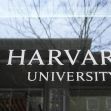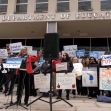A federal judge on Wednesday ordered the restoration of more than $2 billion in research funding to Harvard University, ruling the Trump administration’s freeze and subsequent terminations were unlawful and retaliatory in violation of the First Amendment. U.S. District Judge Allison D. Burroughs of the District of Massachusetts issued summary judgment largely for Harvard and permanently barred the government from using similar funding cutoffs without following civil-rights procedures.
In an 84-page opinion, Burroughs wrote it was “difficult to conclude anything other than that defendants used antisemitism as a smokescreen for a targeted, ideologically-motivated assault on this country’s premier universities.” She added the actions “jeopardized decades of research” and disregarded constitutional protections.
The court vacated the April and May “Freeze Orders” and later “Termination Letters,” and permanently enjoined officials from withholding funds “in retaliation for the exercise of First Amendment rights” or on discrimination grounds without complying with Title VI.
Burroughs emphasized that combating antisemitism is “an important and worthy objective,” and faulted Harvard for tolerating “hateful behavior for as long as it did.” But she found the record did not show that fighting antisemitism was the government’s true aim and said “combating antisemitism cannot be accomplished on the back of the First Amendment.”
The judge detailed the breadth of affected projects: a multi-school tuberculosis consortium, development of an advanced chip to measure NASA astronauts’ radiation exposure for the Artemis II mission, ALS research, and a Veterans Affairs predictive model to help emergency-room physicians decide whether suicidal veterans should be hospitalized. “There is no obvious link between the affected projects and antisemitism,” she wrote.
Harvard President Alan Garber said the ruling “affirms Harvard’s First Amendment and procedural rights, and validates our arguments in defense of the University’s academic freedom, critical scientific research, and the core principles of American higher education.”
The White House said it will appeal. “This activist Obama-appointed judge was always going to rule in Harvard’s favor,” spokesperson Liz Huston said, adding that Harvard “failed to protect their students from harassment” and “remains ineligible for grants in the future.”
Burroughs’ order concludes a fast-moving challenge Harvard filed in April after agencies froze roughly $2.2 billion in multi-year grants and $60 million in contracts hours after the university rejected sweeping demands regarding governance, admissions, hiring, and academic programs. The court found the freeze and terminations violated the First Amendment, were arbitrary and capricious under the Administrative Procedure Act, and failed to follow Title VI procedures.
The decision unfolds amid a broader standoff between the administration and elite universities. Columbia University restored access to federal funds after agreeing to pay $200 million and accept oversight, while Brown University reached a deal that included a $50 million commitment to workforce organizations. The administration has sought a $1 billion settlement from UCLA, according to multiple reports.
Harvard is the first major university to win a merits ruling against the freezes; most others have pursued settlements rather than litigation.
Separately, Burroughs earlier granted Harvard relief in a suit over the government’s move to block it from hosting international students, though a full administrative review could continue.
Next steps could include an emergency request to stay Wednesday’s order while the case proceeds on appeal. Legal analysts noted the administration may seek relief in the First Circuit or directly at the Supreme Court.
What the ruling means: Research payments and terminated grants covered by the freeze and termination letters must be restored, and agencies are barred from re-imposing similar cutoffs without complying with constitutional and statutory limits. The opinion signals that while the government may lawfully enforce civil-rights laws, it cannot condition university funding on viewpoint-based demands or bypass Title VI procedures to do so.
Title VI Procedures—and Why They Matter in the Harvard Funding Ruling
Title VI of the Civil Rights Act of 1964 bars discrimination based on race, color, or national origin in any program or activity receiving federal financial assistance. It authorizes federal agencies to enforce that mandate, but only through specific procedural safeguards. Those steps, not just the anti-discrimination goal, were central to Judge Allison Burroughs’s decision restoring Harvard’s frozen research funds.
Under the statute, an agency may terminate or refuse funding only after it issues generally applicable regulations, advises the recipient of the alleged noncompliance, attempts to secure voluntary compliance, and then makes an express finding “on the record, after opportunity for hearing,” that the recipient failed to comply. Even then, any cut must be limited to the particular program where noncompliance was found, and it cannot take effect until the agency files a written report with the relevant House and Senate committees and 30 days elapse.
Education Department regulations implementing Title VI mirror those protections. OCR must conduct a prompt investigation triggered by a complaint, review, or other information; seek informal resolution when possible; and, if informal means fail, proceed to a hearing before any funding is suspended or terminated. The regulations also permit referral to the Justice Department, but only after the agency determines voluntary compliance cannot be achieved.
Those agency rules further require recipients to keep and share compliance information with investigators and allow access to facilities and records so the government can determine whether a violation exists. The Education Department’s public guidance likewise explains the complaint and investigation process and typical timelines.
Judge Burroughs found the administration did not follow these Title VI procedures when it froze and later moved to terminate Harvard’s awards. In particular, the court noted the freeze orders were issued “without holding any hearing or submitting any report to Congress” and that the termination letters showed “no effort to follow the Title VI procedural requirements” governing fund cutoffs. Those omissions are precisely what the statute and regulations are designed to prevent.
That procedural context explains part of the remedy. Alongside First Amendment rulings, the court vacated the “Freeze Order” and barred the government from withholding additional funds on any discrimination theory unless and until it complies with Title VI—meaning investigation, notice, an opportunity to be heard, and, if necessary, a program-specific termination preceded by congressional notification. In practice, any future enforcement action must run through Title VI’s administrative process rather than unilateral, immediate freezes.
Title VI not only prohibits discrimination—it prescribes the process the government must use to enforce that prohibition. In the Harvard case, the court held that skipping those steps made the funding freeze unlawful, independent of the broader debate about campus antisemitism.






